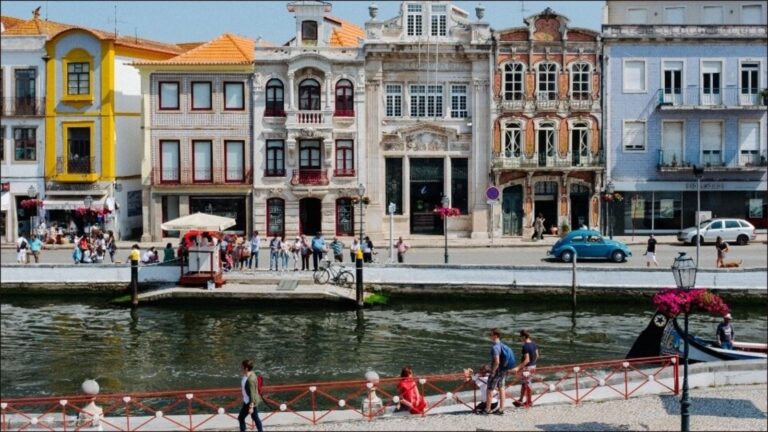Portugal, a haven for retirees, will hold a general election next Sunday to mark 50 years since the 1974 Carnation Revolution that toppled decades of right-wing dictatorship.
Here are five things you should know about this country.
~50 years of democracy~
This year Portugal marks the 50th anniversary of the nearly bloodless coup of April 25, 1974 that ended 48 years of dictatorship and 13 years of colonial war in Africa.
A revolt by idealistic young army officers quickly turned into a popular uprising when the troops were joined by jubilant crowds, and it took less than 24 hours to overthrow Europe's longest-running dictatorship.
It was nicknamed the “Carnation Revolution” because flower sellers handed out seasonal flowers to soldiers, and exactly one year later it led to Portugal's first free elections with universal suffrage.
This is a rare example of a military coup carried out to establish democracy, and is a source of pride in Portugal, whose anniversary is a national holiday called Freedom Day.
~Influx of tourists~
Blessed with 300 days of sunshine a year, Portugal continues to set new records in the number of foreign tourist arrivals.
The sector accounts for about 15% of the country's economic output and generated record revenues of 25 billion euros ($27 billion) last year.
Dubbed the “Florida of Europe,” the country is home to many wealthy expats, including retirees, investors, and digital nomads, attracted by its tranquil lifestyle and attractive tax system.
– …and immigration –
Portugal, which has one of the most open immigration systems in Europe, has seen its foreign-born population double in five years.
One million foreigners lived in Portugal last year, up from fewer than 500,000 in 2018, equivalent to one-tenth of the country's population.
Brazilians, with their long historical ties to Brazil, remain the largest contingent, numbering around 400,000.
There are now more immigrants from India and Nepal than from Angola and Cape Verde, former Portuguese colonies.
Bangladeshis and Pakistanis are also currently in the top 10 of new arrivals.
– Surf XXL –
With more than 800 kilometers (500 miles) of Atlantic coastline and countless breaks of all shapes and sizes, this country attracts surfers from all over the world.
The best-known site is off the coast of downtown Nazaré, where an underwater canyon about 5 kilometers (3 miles) deep near the former fishing village's coastline helped create what is probably the world's largest rideable wave. I am.
In 2020, Germany's Sebastian Steutner set a world record for the largest wave in surfing history at 86 feet (26.2 meters).
~Cork Champion~
Portugal is the world's largest producer of cork, accounting for almost half of the world's supply, according to the Portuguese Cork Association.
Cork is made from the bark of the cork oak (Quercus suber), which covers approximately 720,000 hectares (1,780,000 acres) in Portugal, more than any other country.
Portuguese cork producers are looking to diversify cork's uses beyond wine bottle stoppers, with the material used not only as insulation in buildings but also in footwear, furniture and even the aerospace industry. This is happening more and more.
Last year Portugal's cork exports exceeded €1 billion, a new record.
In 2020, Lisbon Metro replaced the lining of all seats in its cars with an easy-to-maintain cork material.
This article has been published from a news agency feed without modifications to the text. Only the heading has changed.


